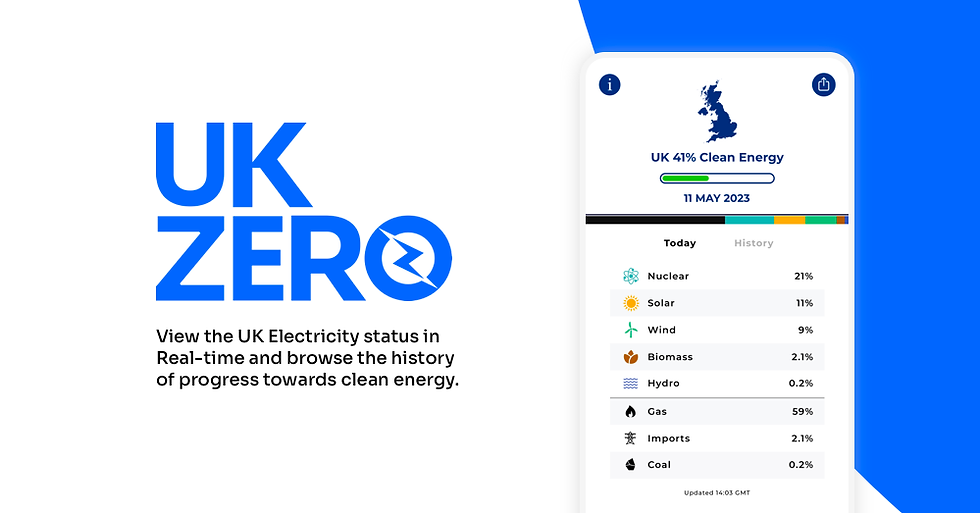20 FAQs about Energy Sources:
- Leo Barnett

- Jun 21, 2024
- 3 min read

1. What are the main types of energy sources?
The main types of energy sources are renewable (e.g., solar, wind, hydro, biomass, geothermal) and non-renewable (e.g., coal, natural gas, oil, nuclear).
2. What is renewable energy?
Renewable energy comes from natural sources that are constantly replenished, such as sunlight, wind, rain, tides, waves, and geothermal heat.
3. Why is renewable energy important?
Renewable energy is important because it reduces greenhouse gas emissions, decreases dependence on fossil fuels, and helps combat climate change.
5. How does solar energy work?
Solar energy works by converting sunlight into electricity using photovoltaic (PV) cells or by using solar thermal systems to generate heat.
6. How does wind energy work?
Wind energy works by using wind turbines to convert the kinetic energy of wind into mechanical power, which is then converted into electricity.
7. How does nuclear energy work?
Nuclear energy is produced through nuclear fission, where the nuclei of atoms are split to release a large amount of energy, which is used to produce steam that drives turbines to generate electricity.
8. How does hydropower work?
Hydropower generates electricity by using flowing water to turn turbines connected to generators. This can be achieved through dams or run-of-river systems.
9. How does biomass energy work?
Biomass energy is produced by burning organic materials like wood, agricultural residues, and waste to generate heat, which is then used to produce electricity.
10. What are the advantages of renewable energy?
Advantages include reduced carbon emissions, sustainable supply, low operating costs, and minimal environmental impact compared to fossil fuels.
11. What are the disadvantages of renewable energy?
Disadvantages include intermittent supply (e.g., solar and wind), high initial costs, and the need for large land areas for some installations.
12. What is the role of natural gas in energy production?
Natural gas is a major source of energy that burns cleaner than coal and oil. It is used for electricity generation, heating, and as an industrial feedstock.
13. Why is coal still used despite its environmental impact?
Coal is still used because it is abundant, cheap, and provides a stable source of energy, especially in developing countries. However, its use is declining due to environmental concerns.
14. What is energy storage and why is it important?
Energy storage involves capturing energy produced at one time for use at a later time. It is important for balancing supply and demand, integrating renewable energy, and ensuring grid stability.
15. How does energy import/export work?
Countries import or export electricity via interconnectors, which are high-voltage cables that connect their grids to neighboring countries. This helps balance supply and demand and enhances energy security.
16. What are the environmental impacts of different energy sources?
Renewable energy sources generally have lower environmental impacts compared to fossil fuels. Fossil fuels contribute to air pollution, greenhouse gas emissions, and climate change. Nuclear energy has low emissions but poses challenges related to radioactive waste disposal.
17. What are smart grids?
Smart grids use digital technology to manage and monitor electricity flow, improve efficiency, and integrate renewable energy sources. They enable better demand response, reduce outages, and enhance grid reliability.
18. What are the future trends in energy production?
Future trends include increasing use of renewable energy, advancements in energy storage technologies, development of smart grids, and innovations in energy efficiency and sustainability.
19. How do government policies impact energy production?
Government policies, such as subsidies, tax incentives, regulations, and renewable energy targets, play a crucial role in shaping the energy mix and promoting the adoption of cleaner energy sources.
20. How can individuals reduce their energy consumption?
Individuals can reduce energy consumption by using energy-efficient appliances, insulating homes, using public transportation, adopting renewable energy sources like solar panels, and practicing energy-saving habits. Are you ready to take action and join the climate-conscious community? The best way to push for change is to monitor the UK’s energy sources. Tracking our progress to net zero and keeping pressure on the government to go green is the only way to stay on top of the climate emergency.
Join the movement! Download UK Zero, connect with others, and let's work together for a sustainable future.




Comments